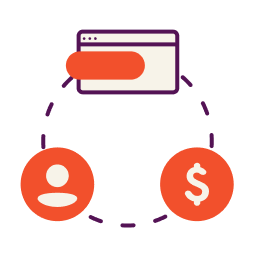Business identity theft is a growing concern for businesses of all sizes across the United States—the Better Business Bureau (BBB), Small Business Administration (SBA), and Internal Revenue Service (IRS) all agree. Identity theft against consumers is one of the most profitable crimes for thieves and it carries a lower risk for them to get caught, according to The U.S. Department of Justice.
Yet businesses are becoming targets, too—because they typically carry much larger bank balances and larger credit lines, which gives thieves bigger opportunities to cash in. In many ways, it’s also easier to open new credit accounts, get higher credit limits, and make larger purchases with less oversight, as these are usually perks that are afforded to commercial clients. Theft can be as high as in the mid-six figures by the time a business detects the crime, according to Robert Strezze, a senior risk analyst with Dun & Bradstreet.
How Perps Are Expanding Into the Commercial Space
There are a number of ways that perps could steal the identity of a business, which include but are not limited to:
• Hacking into business bank accounts
• Manipulating business and personal credit reports
• Fraudulently filing business documents and records
• Using business Tax IDs to commit credit, tax, and other fraud
• Pretending to be an owner/officer and misusing said person’s identity
Thieves will usually use the owner’s information to open up new forms of credit, leaving the owner liable for the unauthorized and unpaid debts. Identity thieves aim to fool creditors, banks, vendors, customers, and the government into thinking the unscrupulous actions being done are by the business owners, rather than the fraudster. The perps will use the new forms of credit to purchase items that can usually be sold or exchanged for cash without much hassle. Here are several problems business identity theft can leave in its wake.
• Destroyed business credit rating
• Destroyed business reputation
• Destroyed business partnerships
• Loss of business revenue
• Potential tax liabilities
• Failure to cover business expenses
• Business failure in general
Recovery and Prevention
Recovering from business identity theft could cost hundreds to thousands of dollars or more, as well as opportunity costs from dealing with the many hours of lost time handling the nuisances. Here’s what you can do to help reduce your risk of becoming a victim of business identity theft.
• Sign up for online banking and review your bank account details daily. Alert your banking institution immediately if you see activity that you don’t recognize. Sign up for various security controls with your bank to avoid fraudulent wire transfers and other fraudulent electronic transactions.
• Review your business and personal credit reports often, as well as sign up for alerts, which notify you when a new credit line is added, a new credit line is removed, a new lien is added, and other actions pertaining to your business and personal credit reports takes place.
In addition:
• Do not send any personal or business information via email to people you don’t know.
• Do routine lien checks against your business to make sure all liens are accurate.
• Do routine state business record checks to make sure everything filed is accurate.
• Use various forms of anti-virus software and run full system scans at least four times a week.
• Use firewalls for your business computers and devices.
• Use fraud management tools for point-of-sale purchases online or in person.
• Keep all business records in a secure place, including both hard and electronic business records.
• Make sure to use paper shredders to shred hard documents no longer needed.
• Check your business reputation and directory listings online often.
If You’re a Victim
If the unfortunate occurs even after following the suggested protective steps, and your business gets hit with identity theft, take the following steps.
• Contact all of your financial partners, such as your bank, insurance company, creditors, all major business credit providers (D&B, Experian, etc.), as well as your CPA, to notify them of the situation and begin the process of correcting what’s inaccurate on the reporting.
• Contact vendors, suppliers, close partners, and potentially your customer base.
• Contact an attorney who specializes in business identity theft-related matters.
• File a report with the police and applicable state government agencies.
• Place a fraud alert on all of your business accounts.
• Document all contact names, notes, and information as you go along.
• Continue fighting through the long process of restoring your reputation, accounts, reports, clearing bad debt from your business/personal name, etc.
Don’t Let the Perps Win
Thieves are getting more creative in how they access and steal information from financial accounts, as well as more efficient in how fast they sell off the stolen purchased items. Billions of dollars a year are being lost, identities are being destroyed, reputations are being tarnished, and businesses are failing as a result.
That’s why it’s important to take proactive measures and reduce your risks. In addition, some states have allocated resources for identity theft. You can check this list to see what identity theft assistance, information, and resources your state offers to businesses.
More answers to pressing questions:
Do Businesses Get a Free Annual Credit Report?
How Often Does My Credit Score Change?
Protecting Your Business from B2B Fraud
Business Credit Scores & Reports
This article was originally written on August 31, 2016 and updated on February 5, 2024.


Have at it! We'd love to hear from you and encourage a lively discussion among our users. Please help us keep our site clean and protect yourself. Refrain from posting overtly promotional content, and avoid disclosing personal information such as bank account or phone numbers.
Reviews Disclosure: The responses below are not provided or commissioned by the credit card, financing and service companies that appear on this site. Responses have not been reviewed, approved or otherwise endorsed by the credit card, financing and service companies and it is not their responsibility to ensure all posts and/or questions are answered.